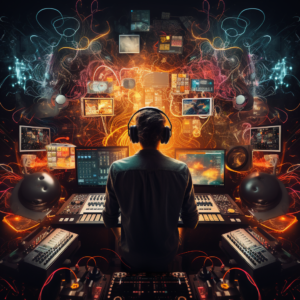Music festivals have undergone tremendous changes in recent years, driven by a desire to stay relevant and provide attendees with unique, unforgettable experiences. These transformative trends have redefined what it means to attend a music festival, and they show no signs of slowing down.
Gone are the days of music festivals being dominated by a single genre or even a handful of popular artists. Today’s festivals feature lineups that are diverse in terms of both genre and identity. Festivals are embracing a wider range of musicians, including more women, people of color, and LGBTQ+ artists. This shift towards more inclusivity has not only made festivals more representative of the world we live in, but has also given a platform to many talented artists who were previously overlooked.
Music festivals are no longer just about seeing live performances; they’re about being fully immersed in a world of art and culture. This trend towards immersive experiences has led to the creation of elaborate art installations, interactive exhibits, and even virtual reality experiences. Festivals are now multi-sensory affairs, allowing attendees to engage with the music and culture in new and exciting ways.
From RFID wristbands to mobile apps, festivals are using technology to enhance the attendee experience. Technological advancements have led to more efficient entry processes, cashless payment options, and personalized recommendations for performances and experiences. Some festivals have even introduced live streaming options, bringing the festival experience to a wider audience.
The transformative trends in music festivals have had a significant social and cultural impact. More diverse lineups have helped to break down barriers and promote equality in the music industry. Immersive experiences and the integration of technology have made festivals more accessible to people with disabilities. Additionally, festivals have become important drivers of tourism and economic growth, bringing in millions of dollars to local communities.
Music festivals have come a long way since their humble beginnings, and their evolution shows no signs of slowing down. By embracing transformative trends and staying connected to their cultural roots, festivals are poised to continue providing unique, unforgettable experiences for years to come.



